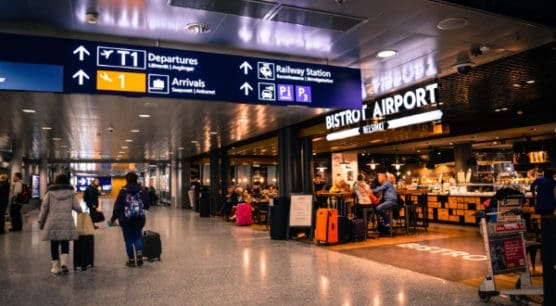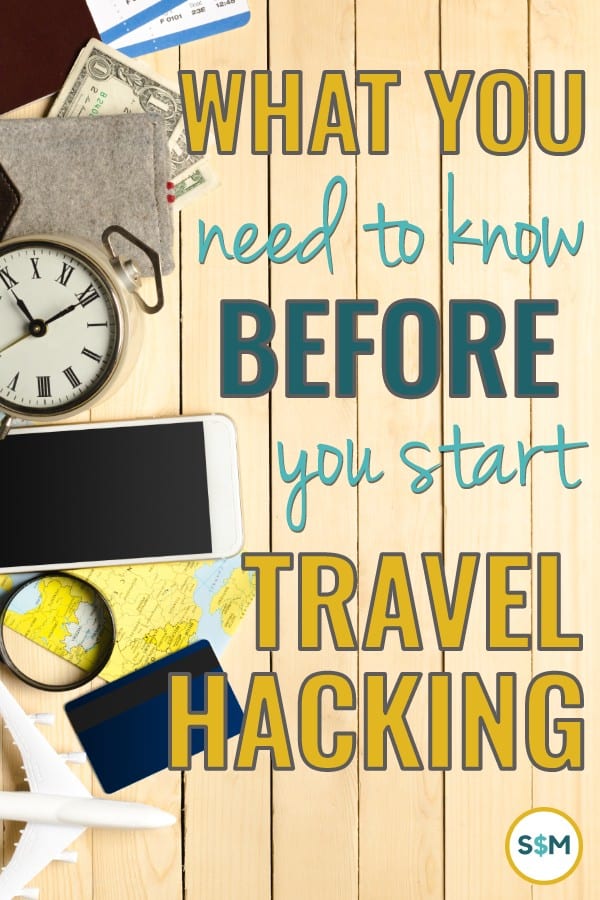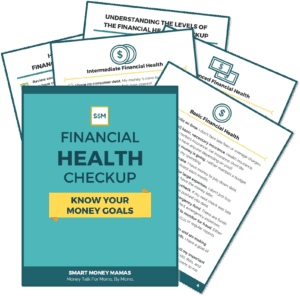Can you really travel for free with your kids?
Yes. People earn thousands of dollars a year in credit card rewards, without racking up debt, to travel the world.
If you’ve been looking for a way to travel with your entire family without breaking the bank, travel hacking might be the answer for you!
But before you dive in and apply for a slew of credit cards, there are a few things you need to be aware of. When you first start reading about travel hacking, it’s easy to get overwhelmed by the details. And when you’re overwhelmed, you can make bad decisions.
So, here’s what you need to know about the risks and strategies of travel hacking.
Table of Contents
What is Travel Hacking?
Travel hacking is strategically using the rules set up by airlines, hotels, and credit card companies to your advantage to earn free travel. Points and miles can cover flights, lodging, and other travel costs such as rental cars.
Many people have one airline or hotel card. And it’s the same card they’ve used for years.
But travel hackers take things further by opening a series of cards to receive sign-up bonuses and earn points more quickly. These bonuses are far more valuable than the slow accumulation of points that occurs simply from daily spending. (Which is how travel hackers can earn thousands in rewards a year while most of us are earning $300 to $400.)
Who Should and Shouldn’t Travel Hack

The first thing to figure out is if travel hacking makes sense for you. It isn’t for everyone, and some people do get into financial trouble attempting it. There are a few things you’ll need to be completely honest with yourself about:
Do you use credit responsibly?
Do you pay your credit cards in full every month? Not spend more with plastic than cash?
If the answer to this is no, travel hacking isn’t going to be for you. Focus on finding flights and hotel rooms on sale and don’t try to travel hack with credit cards.
Unfortunately, the potential for financial damage too high if you don’t use credit responsibly. No amount of credit card rewards are worth racking up high-interest debt.
Do you have a great credit score?
Is your credit score above 740? (You can check for free with Credit Sesame.)
The best credit cards for travel hacking require great credit scores. They are high-end cards, typically with high limits, and the companies want to be sure their customers will pay any debts they create.
If your score is below 740 but above 670, travel hacking may still be possible for you. But it might be harder to qualify for the highest value cards. Below 650 to 670, travel hacking gets harder.
Will you meet the minimum spending requirements with your normal spending?
You only get the sign-up bonus from a credit card if you spend a certain amount of money within a certain amount of time.
This varies by card but can be something like $4,000 in 3 months. If you wouldn’t normally spend this amount on credit, you won’t be getting “free” travel by spending extra on things you don’t need.
Are you buying a home in the next 6 to 12 months?
Responsible travel hacking doesn’t negatively impact your credit score in the long-term. But opening new cards can drop your score 3 to 5 points in the short-term.
If you’re planning on applying for a loan in the next 6 to 12 months – like getting a mortgage or refinancing your student loans – you may be better off waiting until those loans are secured.
Your free flights will end up being super expensive if it means a higher mortgage or student loan rate.
Will Travel Hacking Negatively Impact Your Credit?

One of the fears that prevented me from diving into travel hacking sooner was the fear of a lower credit score. Then I got around to researching how much your score is actually affected.
It’s not something to be afraid of.
Your score may dip a bit, but you shouldn’t see a long-term drop in your credit score. You may even see your credit score improve!
How does this work? Well, the hard inquiry when you try to open a card can decrease your score by 3 to 5 points for a few months.
Now for the good news.
Your utilization (the amount of credit you use versus your total limit available) should decrease when you open a new card. This is because you have more available credit and shouldn’t be using more credit. Utilization has a big impact on your overall credit score – it’s 30% of your FICO score! – which is why many people that travel hack ultimately see an increase in their score.
How to Make a Travel Hacking Plan

If you’ve decided travel hacking is right for you, don’t run out and sign up for a random card today. Spend a little bit of time learning the basic rules. Develop a plan for the order in which you’ll open cards and you’ll get far greater rewards!
Know how you travel.
You won’t want to sign up for a JetBlue card if your local airport – or your favorite destinations – aren’t in JetBlue’s system. And if you prefer to road trip, a hotel card may suit you better than an airline or overall travel card. Take some time to think about what you want to achieve and where you want your points to take you before signing up for any cards.
Not all cards are created equal.
When it comes to travel hacking, the annual fees, minimum spend, bonus rewards, and eligibility will differ based on the card you’re considering. Make sure you know whether you can transfer points out to partner loyalty programs and if there are restrictions on using your points.
Don’t cancel old credit cards.
When many new travel hackers order their first travel card or two, they make the mistake of canceling their old cards. However, one of the metrics that impact your credit card is credit age. Keep older cards to increase your credit age, and you can cancel new cards after 11 months if you are no longer using it after receiving the sign-up bonus.
Don’t be afraid of annual fees.
The best travel credit cards have annual fees. But if the sign-up bonus is worth 4 hotel night stays or a flight to Europe, it’s worth that $50 to $120 fee. And if the fee is only waived for the first year, you can always call and ask to have it waived before Year 2 and cancel before the fee hits if they refuse.
Understand which cards to open first.
For example, Chase has an unspoken 5/24 rule. You won’t qualify for a card if you’ve opened 5 or more cards in the last 24 months. Many of the Chase cards have the best sign-up rewards as far as number and versatility of points. You’ll want to start with those Chase cards before you’ve opened 5 other cards.
Don’t order authorized user cards.
If you’re married, you’ll want to game plan together. Some people open authorized user cards in their spouse’s name thinking it will make it easier to meet the minimum spending. Don’t do this! It counts against the authorized user’s number of “cards opened.” Since they don’t get the sign-up bonus, it ends up being a wasted card.
Instead, you’ll want to open a card, and then have your spouse open a card once you’ve met the minimum spending on yours. That way, you’ll get double the sign-up bonuses.
Make the most of travel card perks.
Besides rewards bonuses, quality travel cards come with great perks. If you book travel with your card, most cover expenses for travel delays or lost baggage, such as covering $500 in expenses for a hotel and food if your plane is more than 4 hours delayed.
Other cards give you access to airport lounges, international rental car or medical insurance, and more. Before booking travel, always look into whether your cards offer additional benefits.
Stay up to date on bonus changes.
Even once you have your plan you’ll want to follow a source to stay up to date on bonus changes. The Points Guy and Choose FI both post about changes to card bonuses. A change in card bonuses (like Southwest’s brief addition of a companion pass as a bonus earlier this year) could change your plans!
How to Stay Organized When Travel Hacking
As moms, we have enough to keep track of, right?
I avoided travel hacking for a long time because I didn’t need one more thing to stay on top of.
But when I did a little research I found that others provide templates to stay organized. And if you’re a responsible user of credit, it doesn’t take that much work to open a card, set up autopay, and enter a few details in a spreadsheet. Many people that do a significant amount of travel hacking say they don’t spend more than 5 to 15 minutes a month managing things.
Don’t underestimate the importance of staying organized.
If you aren’t organized, you could miss a payment and negatively affect your credit. Or, you could miss a minimum spending requirement and lose out on hundreds of dollars of travel rewards.
Is Travel Hacking Worth It?

I didn’t think travel hacking could be worth it. I overestimated the time and underestimated the benefit.
There are many people that earn over $10,000 a year in free travel. And I’ve learned that without doing anything crazy, $5,000-$10,000 a year is a reasonable goal. If your marginal tax rate is 22%, that’s a $6,100 – $12,200 raise! If you’re in a higher tax bracket, it’s equal to even more money. At 15 minutes a month, or 3 hours a year, that’s a pretty good return on your time.
You might be thinking, but what about the card fees?
Those are sometimes waived for the first year. Other times we’re talking a $50-$100 fees for thousands of dollars worth of travel.
If you want to use this strategy to save money, use points and miles to cover travel that you would have paid for anyway. (Like going home to visit family for the holidays.)
If you wouldn’t have been traveling without the points or miles, you probably won’t save money by travel hacking. But you can give yourself the ability to travel by making it more affordable. Just remember that even with the best travel hacking strategy, there are still plenty of expenses while traveling.
You Don’t Need to Know Everything to Get Started
There are people that totally nerd out on all this.
There are experts on every aspect of travel hacking including the order you should sign up for cards, the ways to meet minimum spending requirements, and the most efficient ways to redeem points and miles.
I’m not one of them.
You can learn enough to get started safely, with a basic plan in place, and learn as you go. Don’t let the overwhelming amount of info out there hold you back.
Just remember that responsible credit use and smart personal finance behaviors are always priority number one!
Do you travel hack? What is holding you back? Share your opinions in the comments!




